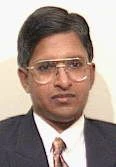Shakiba Delawari is a senior student at Kabul University’s clinical psychology and counseling department. As a female university student, she is in minority as most girls in Afghanistan marry young and do not pursue higher education.
Shakiba is studying the psychological challenges that most Afghans face, including her close friends and relatives. During this time and throughout her young life she has seen many around her suffer from distress and other mental disorders. Like about three-quarters of Afghan youth, Shakiba herself experienced the trauma a of internal displacement as a child—twice in her case, during the 1990s civil war, and again under Taliban rule.
The country’s ongoing conflict continues to foster uncertainty, with youth often reporting that they see few clear pathway for personal and professional development. Despite this, many young Afghans like Shakiba continue to pursue education in fields that will enable them to help others.
And the World Bank-supported Higher Education Development Project aims to support them. Through the project, model counseling centers in universities provide various types of professional psycho-social support and programs for both faculty and students. Female students receive special attention to help them cope better with everyday challenges and stressful situations. Activities include academic, psychological, couple, and drug addiction counseling.
One such center has been established at Kabul Education University, which has a student body of around 7,600. Its counseling protocols, guidelines, and materials were prepared by Hunter College in the United States, in close partnership with Kabul University’s psychology faculty. It currently serves some 100 students, and 300 more are waiting for help, reflecting the student body’s strong demand for professional counseling and psycho-social support.
Counseling centers help respond to pressing needs. Traumas run deep and are all too common in Afghanistan. According to the 2018 Afghanistan National Mental Health Survey, over 66 percent of Afghans have personally experienced at least one traumatic event. More than 77 percent have witnessed at least one such event, and 84 percent have either personally suffered or witnessed a traumatic event. Though public health figures indicate that over half of Afghanistan’s population suffers psychological distress, the country counts only around 300 psychiatrists.
Afghanistan’s government is committed to expanding counseling centers to all public universities, and the country’s president has approved 55 staff positions for the centers. Investments like these help young people who are experiencing conflict firsthand equip themselves to make the most of their opportunities.
Shakiba finds the counseling center’s environment conducive and professional as she trains hard to become part of the future cadre of psychologists. The physical infrastructure, the center’s staff, and its services are convenient and welcoming. This is in stark contrast to the public psychiatric hospitals where students are often referred to for support and internships — seeking help for mental disorders and distress in Afghanistan remains heavily stigmatized. Furthermore, the involvement of students as interns with credible work program and engagement is a source of confidence for other students to come forth to use services and seek support.
“The youth, and particularly university students, need to have the opportunity and space to reflect on their difficulties and sufferings,” says Shakiba. “They need to have the opportunity to acknowledge how difficult it has been for them to come this far. Once they realize what they have achieved, they can continue to thrive with even more motivation.”
This blog coincides with World Mental Health Day on 10 October, which raises awareness of mental health issues around the world and mobilizes efforts in support of mental health.




Join the Conversation